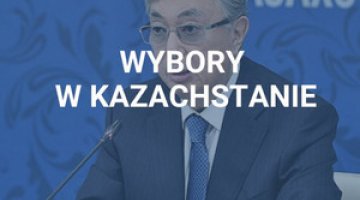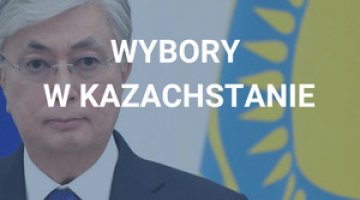Analyses
Making the finishing touches to the adjustment of Kazakhstan’s political system
On 19 January 2023, Kazakhstan’s President Kassym-Jomart Tokayev dissolved the lower house of parliament (the Mazhilis) and called early general elections for 19 March. According to the schedule adopted by the Central Election Committee, candidates must be nominated by 8 February and party lists registered by 18 February. On the basis of these lists, voters will elect 69 MPs to the Mazhilis, while another 29 MPs will be elected in single-member districts for terms of five years, in line with the voting procedure amended in 2022. On the same day, 19 March, elections will also be held to local councils at all levels.
Commentary
- The elections to the Mazhilis will finish the process of adjusting the state’s political system which was launched following the bloody street protests held in January 2022 (according to official information 238 individuals were killed during the riots). In the wake of the changes triggered by the crisis Nursultan Nazarbayev, the country’s unquestioned leader since regaining independence in 1991, was marginalised, and the influence of his family and aides was limited to some degree. As part of the process of adapting to the new circumstances, Kazakhstan amended its constitution in a referendum (one of the amendments resulted in Nazarbayev being stripped of his special rights), held an early presidential election in which Tokayev was re-elected (20 November 2022) and partial elections to the Senate (14 January 2023), and called early general elections.
- The incumbent president’s declared policy objectives include a gradual, top-down liberalisation of the political system (whose ultimate goal is to reform the super-presidential model of governance) and the controlled empowerment of parliament, whose role has hitherto been symbolic. The president also hopes to win public support for these initiatives. The legislative changes adopted in 2022 introduced facilitated procedures for registering new political parties (the required number of founding members was reduced from 1000 to 700, the minimum number of party members from 20,000 to 5,000 and the number of party activists in one electoral district from 600 to 200). The electoral threshold reduced to 5% (from 7%), and the voting system was changed from fully proportional to mixed (70%/30% respectively). Voters will also be allowed to cast a vote ‘against all candidates’. The purpose of the new electoral system is to boost competition, and consequently to increase the level of public representation in the Mazhilis. As a consequence, the body should now be able serve as a forum for genuine political debate to reflect society’s aspirations and channel tensions. This in turn could help Kazakhstan to avoid violent crises in the future.
- On the eve of the electoral campaign, there are seven registered parties on Kazakhstan’s political scene, three of which had representation in the last Mazhilis. These are the ruling Amanat party (known until March 2022 as Nur Otan), the Aq Zhol Democratic Party and the People’s Party of Kazakhstan (the successor to the Communist party). Each of them fits into the broadly understood spectrum of the pro-presidential ruling elite. Other parties which have confirmed their intention to run in the coming elections include the Nationwide Social Democratic Party, which advocates moderate democratisation (it boycotted the 2021 parliamentary elections), and the agrarian Auyl party. In the period preceding the announcement of the election date two new parties were registered, whose leaders have publicly declared their support for the policy pursued by the president. These are the environmentally-oriented Baitak party (headed by Azamatkhan Amirtay; it is a conglomerate of hunting lobby groups and environmental activists) and the free market-oriented Respublica party (headed by Aydarbek Khodzhanazarov, CEO of the Olzha Agro agri-food holding), which is made up of business owners and bloggers. According to the most recent reports, Baitak and Respublica cannot run in the elections to the Mazhilis because they do not have sufficiently large regional structures.
- It is unlikely that there will be a truly democratic breakthrough in Kazakhstan, including a major overhaul of its political scene following the elections. The presidential camp and a narrow political and business elite are the favourites because they control the administrative apparatus and dominate the financial and media sectors. The opposition, on the other hand, lacks strong leaders, platforms, structures and financial backing, while Kazakh society shows no signs of active involvement in the country’s political life. This was also evident during the recent presidential election, which came under criticism from OSCE observers. However, the prospect of new political forces gaining ground during the campaign and of several individuals from outside the core elite entering parliament seems realistic. This would be in line with the planned limited and controlled pluralisation of the political scene. The outcome of the elections will be even more important for the dominant elite; the selection of candidates will reflect the relationship between the president and the political, business and regional elites which form an organic legacy of the Nazarbayev system. Tokayev’s actions to date indicate his readiness to compromise while gradually strengthening his authority: the purges and the reshuffle within the elite which followed the January 2022 protests were selective.
- Both the course and the outcome of the elections will have significant consequences for Kazakhstan as a whole. Domestically, they will clarify Tokayev’s position on the political scene and within the elite. This, in turn, will affect his future policy towards the Nazarbayev family, who remain influential. In addition, they will define in greater detail the relation between the state and society, which went through a process of civil awakening in January 2022 and continues to face the limitations of the state system, social problems and identity changes (including the growing importance of patriotism and ‘Kazakhness’ in a multi-ethnic society). The stability of the system encompassing the president, the elite and society, and the country’s resilience to internal shocks, are becoming increasingly important in Kazakhstan, especially in the context of international dynamics: the power of Russian revisionism (which is evident in the war in Ukraine), anti-Kazakh propaganda (which is increasingly frequent in Russia), China’s growing ambitions in the region, and the West’s increasing attractiveness as an actor which is able to alleviate regional problems.



